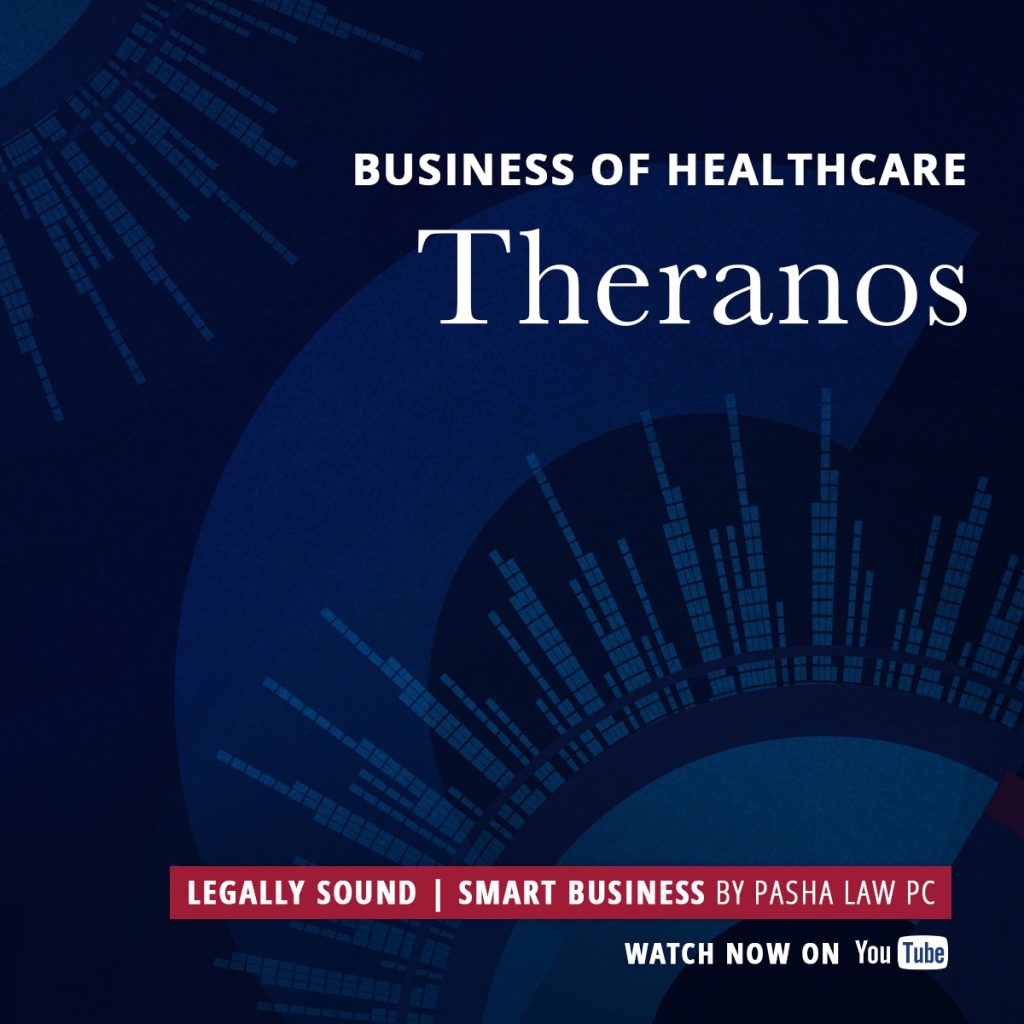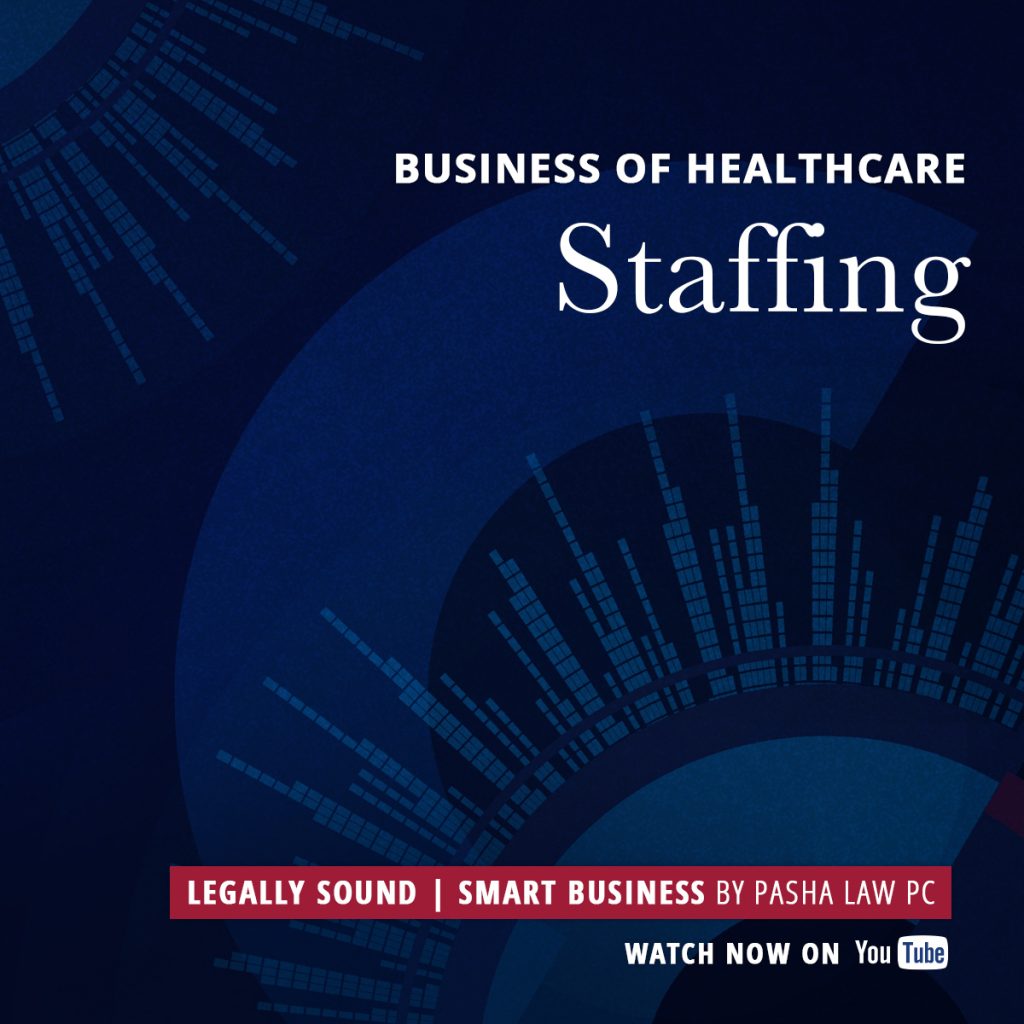The federal government proposed 16 Stark and Anti-Kickback rule changes in October 2019. The policy behind the changes was to make healthcare more accessible to patients and allow physicians to enter into arrangements to allow patients to get better care that would normally be prohibited under Stark and Anti-Kickback Statutes. The main proposed changes are related to making value-based arrangements and coordinated care between providers easier. As healthcare providers move away from fee-for-service arrangements towards value-based arrangements, it is likely that the new proposed exceptions will increase the need for value-based arrangements if passed.
Fee-for-Service versus Value-Based Arrangements
Historically, to comply with the Stark Law and Anti-Kickback Statutes, healthcare providers have been compensated under a fee-for-service reimbursement model. Under a fee-for-service model, the healthcare provider is compensated for every test, procedure, or treatment that is performed by the provider. Fee-for-service models are based on the quantity of the treatments provided rather than the quality of the treatment provided. In other words, patient outcomes, as in whether the treatment was effective for the patients, are not taken into consideration when compensating under the fee-for-service model.
In contrast, under a value-based reimbursement model, healthcare providers are compensated based on patient health outcomes. Essentially, providers are rewarded if the provider effectively manages the health of patients. Value-based models require providers to collaborate and utilize a team-oriented approach to patient care in the hope of delivering the best patient outcome possible. Value-based arrangements effectively compensate and incentivize providers to provide quality patient care. If the provider has too many readmissions or the quality of care is lagging, the provider’s compensation may be reduced.
Proposed Rule from Centers of Medicare and Medicaid Services (CMS)
Stark, also known as the Physician Self-Referral Law, was designed to prevent physicians from ordering unnecessary services or from steering patients to certain facilities where the physician, or a family member of the physician, had a financial interest. Many healthcare providers have transitioned to a value-based healthcare and delivery system. However, the Stark Law may prevent some arrangements that were designed to enhance care coordination between providers, improve quality, and reduce waste. The proposed changes to the Stark Law are designed to clarify which activities and entities qualify for the new exceptions from Stark Law restrictions, such as the “value-based arrangement,” “value-based enterprise,” and other arrangements based on value and not on volume.
The six proposed enforcement changes for the Stark Law include:
- Creating new exceptions to the Stark Law for value-based arrangements to encourage providers to engage in more of these types of arrangements.
- Applying Stark exceptions to arrangements for all patients, both Medicare patients and patients outside of Medicare.
- CMS is seeking comments on requiring a provision of cost-of-care information to be given to patients at the point of a referral.
- Proposing additional guidance on several key Stark compliance requirements, such as defining “commercially reasonable.”
- Providing direction on how to determine whether compensation meets the “fair market value” requirement.
- Providing new flexibility for certain arrangements, such as cybersecurity technology donations, that do not qualify as value-based payment arrangements.
Proposed Rule from U.S. Department of Health and Human Services (HHS)
The federal Anti-Kickback Statute created criminal penalties for parties who knowingly and willfully pay anything of value for business referrals for services covered by any federal healthcare program. Although some types of arrangements previously were acceptable if they fit strictly into an exception, other arrangements had to be approved on a case-by-case basis. Like the proposed Stark Law rule changes, HHS looks to promote value-based arrangements.
The ten proposed rule changes for enforcement of the Anti-Kickback Statute include:
- Proposing new safe harbors for certain payments between eligible participants in certain value-based arrangements.
- Providing a new safe harbor for certain tools and supports that improve quality, health outcomes, and efficiency for patients, but does include some exclusions.
- Offering a new safe harbor for some remunerations in connection with CMS-sponsored models.
- Forming a new safe harbor for donations of cybersecurity technology and services to effectively respond to cyberattacks.
- Revising the existing safe harbor for electronic health record (EHR) items and services to add cybersecurity technology and interoperability and to remove the sunset date of December 31, 2021.
- Adding flexibility to value-based payments and part-time arrangements.
- Revising the definition of warranty and providing protection for bundled warranties.
- Enlarging and adjusting mileage limits for rural areas and for transportation of patients discharged from inpatient facilities.
- Codifying a provision that creates an exception to the definition of remuneration related to accountable care organization (ACO) beneficiary payments.
- Modifying the prohibition on beneficiary inducements for telehealth technologies provided to certain in-home dialysis patients by a dialysis provider or renal dialysis facility.
Office of Inspector General’s Commentary on the Proposed Anti-Kickback Changes
The OIG would change enforcement of the Anti-kickback statute by proposing that CMS-sponsored models can now operate under a safe harbor which would likely replace the current model under the Anti-Kickback Statute that would allow exceptions under a case-by-case basis. It should be noted that the OIG stated that the proposed protection of value-based arrangements would not apply to certain entities, such as pharmaceutical manufacturers. The hope in the proposed rule changes would be to offer flexibility for beneficial innovation and improved coordinated care for patients.
Conclusion
As with any new rules and regulations that come out, legal review will be more important. HHS usually will review individual arrangements and agreements and approve or deny the arrangement. If the proposed rules are adopted, HHS would be required to review all the agreements between providers across the care continuum. As value-based care is rooted in having different providers work together to treat patients, the totality of the arrangements and agreements will all need review. As these are the proposed changes, the final rule that is adopted may differ from the above.






![Business of Healthcare [e316]](https://www.pashalaw.com/wp-content/uploads/2021/11/Pasha_LSSB_BusinessofHealthcare_banner-1024x723.jpg)




![Law in the Digital Age: Exploring the Legal Intricacies of Artificial Intelligence [e323]](https://www.pashalaw.com/wp-content/uploads/2023/11/WhatsApp-Image-2023-11-21-at-13.24.49_4a326c9e-300x212.jpg)
![Unraveling the Workforce: Navigating the Aftermath of Mass Layoffs [e322]](https://www.pashalaw.com/wp-content/uploads/2023/07/Untitled-design-23-300x212.png)
![Return to the Office vs. Remote: What Can Employers Legally Enforce? [e321]](https://www.pashalaw.com/wp-content/uploads/2023/01/Pasha_LSSB_321_banner-300x212.jpg)
![Explaining the Hans Niemann Chess Lawsuit v. Magnus Carlsen [e320]](https://www.pashalaw.com/wp-content/uploads/2022/10/LAWYER-EXPLAINS-7-300x169.png)
![California v. Texas: Which is Better for Business? [313]](https://www.pashalaw.com/wp-content/uploads/2021/07/Pasha_LSSB_CaliforniaVSTexas-300x212.jpg)
![Buyers vs. Sellers: Negotiating Mergers & Acquisitions [e319]](https://www.pashalaw.com/wp-content/uploads/2022/06/Pasha_LSSB_BuyersVsSellers_banner-300x212.jpg)
![Employers vs. Employees: When Are Employment Restrictions Fair? [e318]](https://www.pashalaw.com/wp-content/uploads/2022/05/Pasha_LSSB_EmployeesVsEmployers_banner-1-300x212.jpg)
![Vaccine Mandates Supreme Court Rulings [E317]](https://www.pashalaw.com/wp-content/uploads/2022/02/WhatsApp-Image-2022-02-11-at-4.10.32-PM-300x212.jpeg)
![Business of Healthcare [e316]](https://www.pashalaw.com/wp-content/uploads/2021/11/Pasha_LSSB_BusinessofHealthcare_banner-300x212.jpg)
![Social Media and the Law [e315]](https://www.pashalaw.com/wp-content/uploads/2021/10/WhatsApp-Image-2021-10-06-at-1.43.08-PM-300x212.jpeg)
![Defining NDA Boundaries: When does it go too far? [e314]](https://www.pashalaw.com/wp-content/uploads/2021/09/Pasha_LSSB_NDA_WordPress-2-300x212.jpg)
![More Than a Mistake: Business Blunders to Avoid [312] Top Five Business Blunders](https://www.pashalaw.com/wp-content/uploads/2021/06/Pasha_LSSB_Blunders_WP-1-300x212.jpg)
![Is There a Right Way to Fire an Employee? We Ask the Experts [311]](https://www.pashalaw.com/wp-content/uploads/2021/02/Pasha_LSSB_FireAnEmployee_Website-300x200.jpg)
![The New Frontier: Navigating Business Law During a Pandemic [310]](https://www.pashalaw.com/wp-content/uploads/2020/12/Pasha_LSSB_Epidsode308_Covid_Web-1-300x200.jpg)
![Wrap Up | Behind the Buy [8/8] [309]](https://www.pashalaw.com/wp-content/uploads/2020/11/Pasha_BehindTheBuy_Episode8-300x200.jpg)
![Is it all over? | Behind the Buy [7/8] [308]](https://www.pashalaw.com/wp-content/uploads/2020/09/iStock-1153248856-overlay-scaled-300x200.jpg)
![Fight for Your [Trademark] Rights | Behind the Buy [6/8] [307]](https://www.pashalaw.com/wp-content/uploads/2020/07/Fight-for-your-trademark-right-300x200.jpg)
![They Let It Slip | Behind the Buy [5/8] [306]](https://www.pashalaw.com/wp-content/uploads/2020/06/Behind-the-buy-they-let-it-slip-300x200.jpg)
![Mo’ Investigation Mo’ Problems | Behind the Buy [4/8] [305]](https://www.pashalaw.com/wp-content/uploads/2020/05/interrobang-1-scaled-300x200.jpg)
![Broker or Joker | Behind the Buy [3/8] [304] Behind the buy - Broker or Joker](https://www.pashalaw.com/wp-content/uploads/2020/04/Joker-or-Broker-1-300x185.jpg)
![Intentions Are Nothing Without a Signature | Behind the Buy [2/8] [303]](https://www.pashalaw.com/wp-content/uploads/2020/04/intentions-are-nothing-without-a-signature-300x185.jpg)
![From First Steps to Final Signatures | Behind the Buy [1/8] [302]](https://www.pashalaw.com/wp-content/uploads/2020/04/first-steps-to-final-signatures-300x185.jpg)
![The Dark-side of GrubHub’s (and others’) Relationship with Restaurants [e301]](https://www.pashalaw.com/wp-content/uploads/2015/04/When-Competition-Goes-Too-Far-Ice-Cream-Truck-Edition-300x201.jpg)
![Ultimate Legal Breakdown of Internet Law & the Subscription Business Model [e300]](https://www.pashalaw.com/wp-content/uploads/2019/05/Ultimate-Legal-Breakdown-of-Internet-Law-the-Subscription-Business-Model-300x196.jpg)
![Why the Business Buying Process is Like a Wedding?: A Legal Guide [e299]](https://www.pashalaw.com/wp-content/uploads/2019/03/futura-300x169.jpg)
![Will Crowdfunding and General Solicitation Change How Companies Raise Capital? [e298]](https://www.pashalaw.com/wp-content/uploads/2018/11/Will-Crowdfunding-and-General-Solicitation-Change-How-Companies-Raise-Capital-300x159.jpg)
![Pirates, Pilots, and Passwords: Flight Sim Labs Navigates Legal Issues (w/ Marc Hoag as Guest) [e297]](https://www.pashalaw.com/wp-content/uploads/2018/07/flight-sim-labs-300x159.jpg)
![Facebook, Zuckerberg, and the Data Privacy Dilemma [e296] User data, data breach photo by Pete Souza)](https://www.pashalaw.com/wp-content/uploads/2018/04/data-300x159.jpg)
![What To Do When Your Business Is Raided By ICE [e295] I.C.E Raids business](https://www.pashalaw.com/wp-content/uploads/2018/02/ice-cover-300x159.jpg)
![General Contractors & Subcontractors in California – What you need to know [e294]](https://www.pashalaw.com/wp-content/uploads/2018/01/iStock-666960952-300x200.jpg)
![Mattress Giants v. Sleepoplis: The War On Getting You To Bed [e293]](https://www.pashalaw.com/wp-content/uploads/2017/12/sleepopolis-300x159.jpg)
![The Harassment Watershed [e292]](https://www.pashalaw.com/wp-content/uploads/2017/12/me-2-300x219.jpg)
![Investing and Immigrating to the United States: The EB-5 Green Card [e291]](https://www.pashalaw.com/wp-content/uploads/2012/12/eb-5-investment-visa-program-300x159.jpg)
![Responding to a Government Requests (Inquiries, Warrants, etc.) [e290] How to respond to government requests, inquiries, warrants and investigation](https://www.pashalaw.com/wp-content/uploads/2017/10/iStock_57303576_LARGE-300x200.jpg)
![Ultimate Legal Breakdown: Employee Dress Codes [e289]](https://www.pashalaw.com/wp-content/uploads/2017/08/Ultimate-Legal-Breakdown-Template-1-300x159.jpg)
![Ultimate Legal Breakdown: Negative Online Reviews [e288]](https://www.pashalaw.com/wp-content/uploads/2017/06/Ultimate-Legal-Breakdown-Online-Reviews-1-300x159.jpg)
![Ultimate Legal Breakdown: Social Media Marketing [e287]](https://www.pashalaw.com/wp-content/uploads/2017/06/ultimate-legal-breakdown-social-media-marketing-blur-300x159.jpg)
![Ultimate Legal Breakdown: Subscription Box Businesses [e286]](https://www.pashalaw.com/wp-content/uploads/2017/03/ultimate-legal-breakdown-subscription-box-services-pasha-law-2-300x159.jpg)
![Can Companies Protect Against Foreseeable Misuse of Apps [e285]](https://www.pashalaw.com/wp-content/uploads/2017/01/iStock-505291242-300x176.jpg)
![When Using Celebrity Deaths for Brand Promotion Crosses the Line [e284]](https://www.pashalaw.com/wp-content/uploads/2017/01/celbrity-300x159.png)
![Are Employers Liable When Employees Are Accused of Racism? [e283] Racist Employee](https://www.pashalaw.com/wp-content/uploads/2016/12/Are-employers-liable-when-an-employees-are-accused-of-racism-300x159.jpg)
![How Businesses Should Handle Unpaid Bills from Clients [e282] What to do when a client won't pay.](https://www.pashalaw.com/wp-content/uploads/2016/12/How-Businesses-Should-Handle-Unpaid-Bills-to-Clients-300x159.png)
![Can Employers Implement English Only Policies Without Discriminating? [e281]](https://www.pashalaw.com/wp-content/uploads/2016/11/Can-Employers-Impliment-English-Only-Policies-Without-Discriminating-300x159.jpg)
![Why You May No Longer See Actors’ Ages on Their IMDB Page [e280]](https://www.pashalaw.com/wp-content/uploads/2016/10/IMDB-AGE2-300x159.jpg)
![Airbnb’s Discrimination Problem and How Businesses Can Relate [e279]](https://www.pashalaw.com/wp-content/uploads/2016/09/airbnb-300x159.jpg)
![What To Do When Your Amazon Account Gets Suspended [e278]](https://www.pashalaw.com/wp-content/uploads/2016/09/What-To-Do-When-Your-Amazon-Account-Gets-Suspended-1-300x200.jpg)
![How Independent Artists Reacted to Fashion Mogul Zara’s Alleged Infringement [e277]](https://www.pashalaw.com/wp-content/uploads/2016/08/How-Independent-Artists-Reacted-to-Fashion-Mogul-Zaras-Alleged-Infringement--300x159.jpg)
![Can Brave’s Ad Replacing Software Defeat Newspapers and Copyright Law? [e276]](https://www.pashalaw.com/wp-content/uploads/2016/08/Can-Braves-Ad-Replacing-Software-Defeat-Newspapers-and-Copyright-Law-300x159.jpg)
![Why The Roger Ailes Sexual Harassment Lawsuit Is Far From Normal [e275]](https://www.pashalaw.com/wp-content/uploads/2016/07/WHY-THE-ROGER-AILES-SEXUAL-HARASSMENT-LAWSUIT-IS-FAR-FROM-NORMAL-300x159.jpeg)
![How Starbucks Turned Coveted Employer to Employee Complaints [e274]](https://www.pashalaw.com/wp-content/uploads/2016/07/iStock_54169990_LARGE-300x210.jpg)
